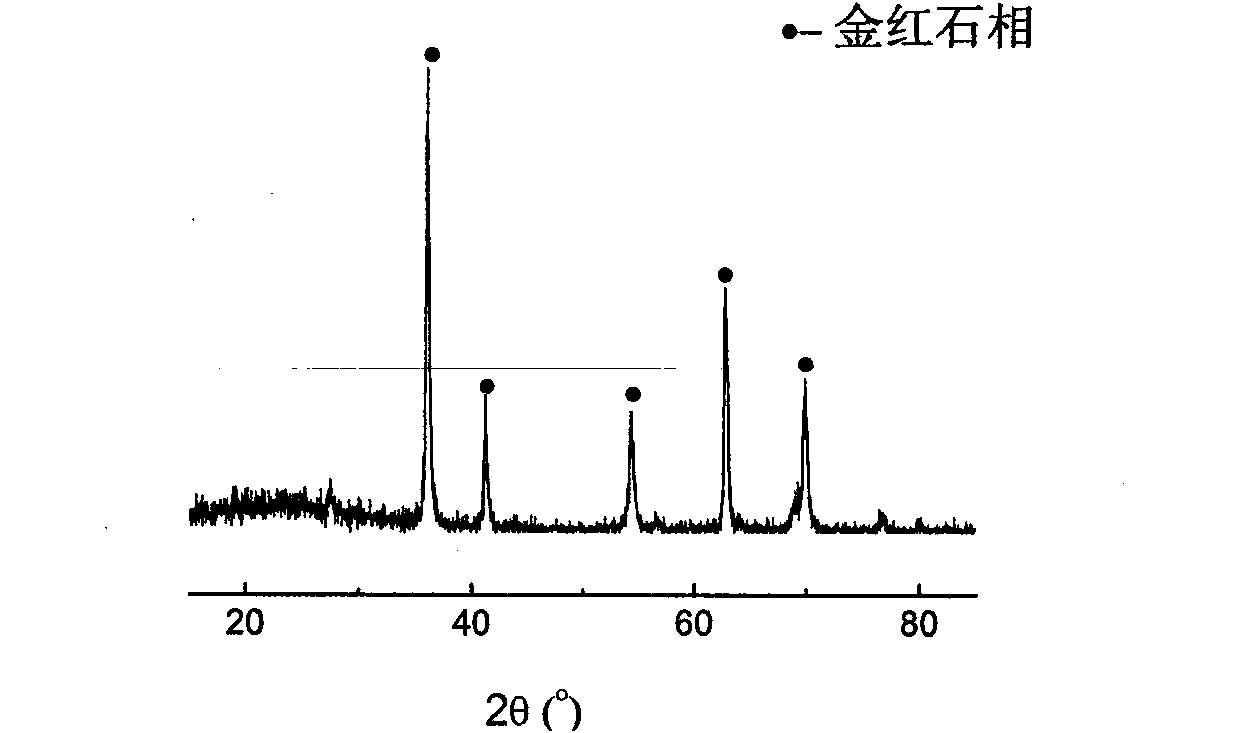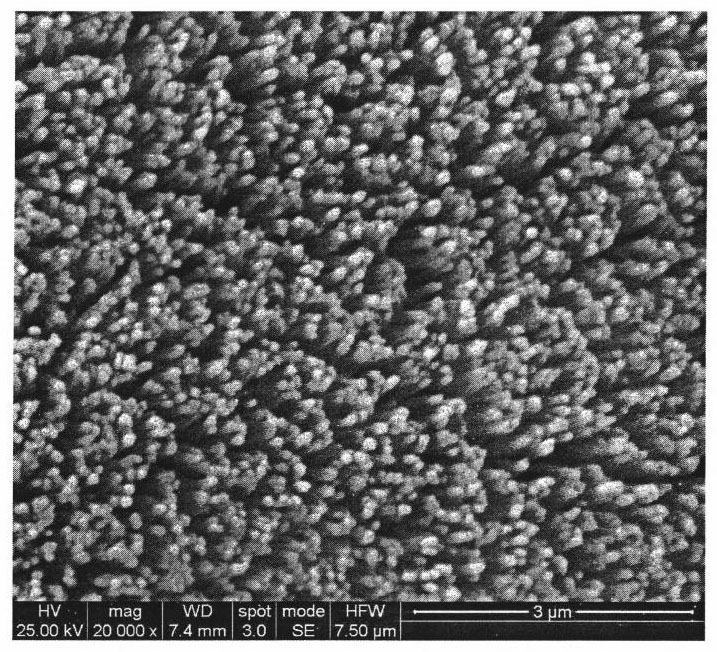Rutile TiO2 nanowire array synthesized by soft chemistry and hydrothermal technology and preparation method thereof
A nanowire array, rutile phase technology, applied in the direction of titanium dioxide, titanium oxide/hydroxide, etc., can solve the problems of complex preparation process, and achieve the effect of high photocatalytic activity, good photocatalytic activity, and no need for high temperature heat treatment
- Summary
- Abstract
- Description
- Claims
- Application Information
AI Technical Summary
Problems solved by technology
Method used
Image
Examples
Embodiment 1
[0019] Put the glass slide cleaned with ethanol solution into an ultrasonic cleaner for a few minutes, and then clean it with deionized water. It was placed in a sealed reaction vessel lined with Teflon for later use. Using toluene as a solvent, prepare a tetrabutyl titanate solution with a concentration of 1mol / L and a titanium tetrachloride solution with a concentration of 1mon / L, respectively. Drainage with a glass rod, slowly add a certain amount of concentrated hydrochloric acid, toluene, tetrabutyl titanate solution and titanium tetrachloride solution into the reaction kettle, so that the volume ratio is 1:10:1:1. Then the reaction kettle was placed in an oven with a temperature of 180° C., and it was taken out after 22 hours. After it cools down, take out the slide at the bottom, and you will get TiO on the slide 2 nanowire array.
Embodiment 2
[0021] Put the glass slide cleaned with ethanol solution into an ultrasonic cleaner for a few minutes, and then clean it with deionized water. It was placed in a sealed reaction vessel lined with Teflon for later use. Using toluene as solvent, prepare a tetrabutyl titanate solution with a concentration of 1mon / L and a titanium tetrachloride solution with a concentration of 1mon / L, respectively. Drainage with a glass rod, slowly add a certain amount of concentrated hydrochloric acid, toluene, tetrabutyl titanate solution and titanium tetrachloride solution into the reaction kettle, so that the volume ratio is 1:10:1:1. The reaction kettle was then placed in an oven at a temperature of 180° C., and it was taken out after 14 hours. After it cools down, take out the slide at the bottom, and you will get TiO on the slide 2 nanowire array.
Embodiment 3
[0023] Put the glass slide cleaned with ethanol solution into an ultrasonic cleaner for a few minutes, and then clean it with deionized water. It was placed in a sealed reaction vessel lined with Teflon for later use. Using toluene as solvent, prepare a tetrabutyl titanate solution with a concentration of 1mon / L and a titanium tetrachloride solution with a concentration of 1mon / L, respectively. Drainage with a glass rod, slowly add a certain amount of concentrated hydrochloric acid, toluene, tetrabutyl titanate solution and titanium tetrachloride solution into the reaction kettle, so that the volume ratio is 1:10:1:1. The reaction kettle was then placed in an oven at a temperature of 180° C., and it was taken out after 6 hours. After it cools down, take out the slide at the bottom, and you will get TiO on the slide 2 nanowire array.
PUM
| Property | Measurement | Unit |
|---|---|---|
| diameter | aaaaa | aaaaa |
Abstract
Description
Claims
Application Information
 Login to View More
Login to View More - R&D Engineer
- R&D Manager
- IP Professional
- Industry Leading Data Capabilities
- Powerful AI technology
- Patent DNA Extraction
Browse by: Latest US Patents, China's latest patents, Technical Efficacy Thesaurus, Application Domain, Technology Topic, Popular Technical Reports.
© 2024 PatSnap. All rights reserved.Legal|Privacy policy|Modern Slavery Act Transparency Statement|Sitemap|About US| Contact US: help@patsnap.com










